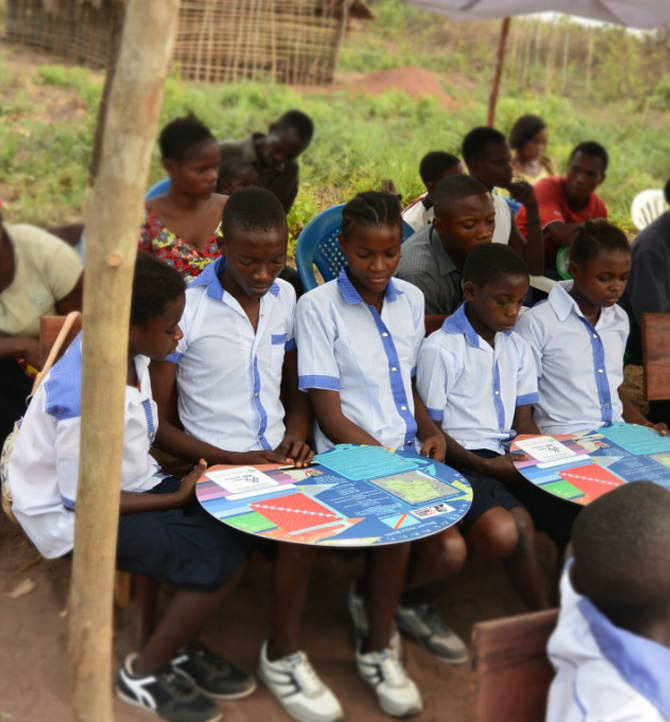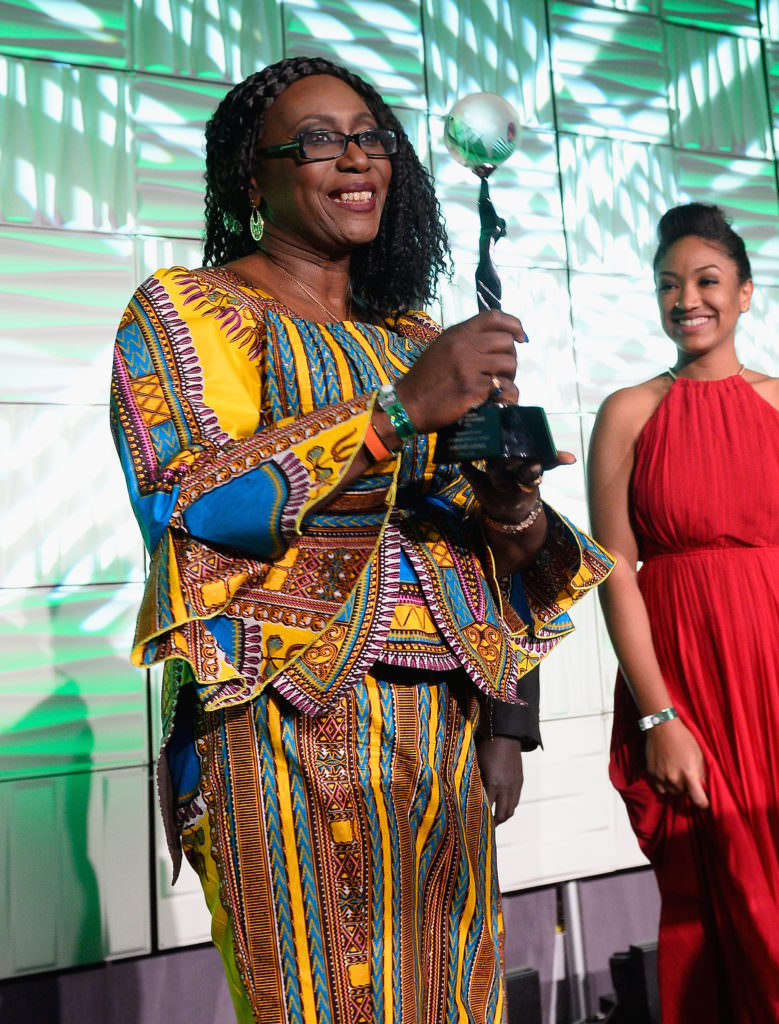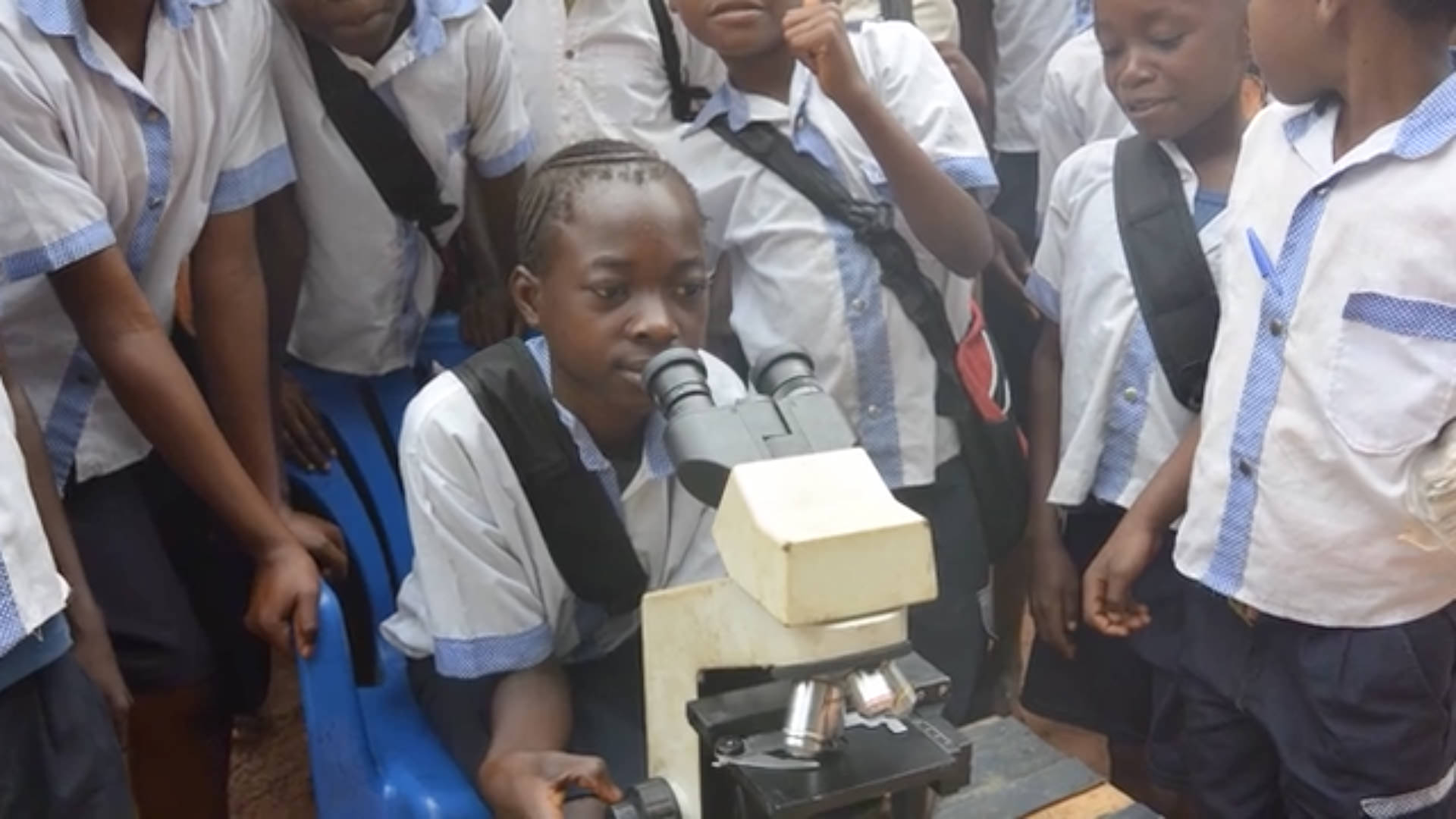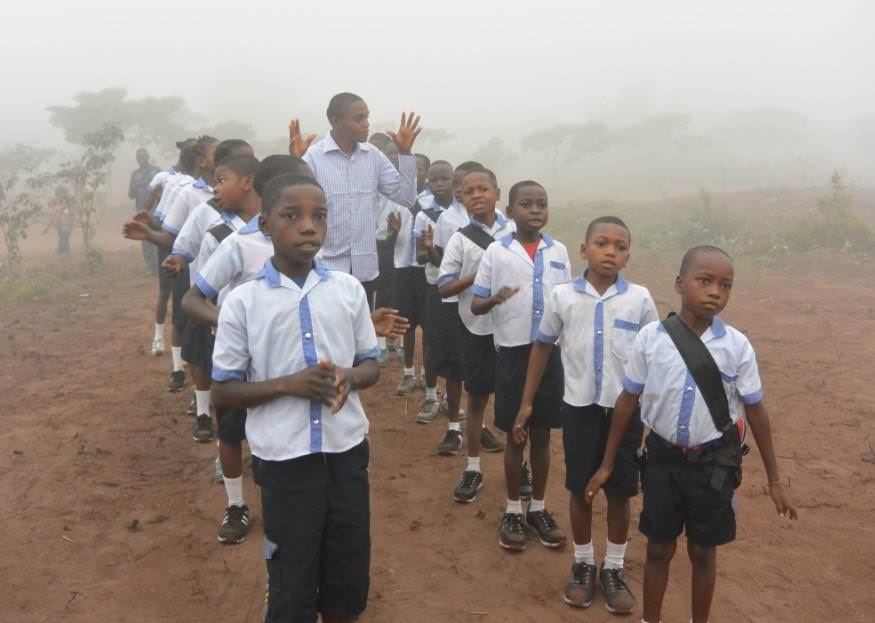Rising bright and early, a group of 20 primary school students at Brilliant Mobile School in the Democratic Republic of Congo line up outside the school tent in uniform. They sing a song to mark the start of their school day and tuck into a free breakfast before hitting the books at 7:30 am when classes begin.
In addition to learning math, history and civics, these children, part of the Lagundi mining community, now have the chance to play sports and enjoy a free lunch before going home to spend time with family and do their homework.
Children of Diamond Miners Lack Access to Education
It’s a far cry from a day spent with parents working in alluvial diamond mines—a harsh reality for many kids in a country where one in four children ages 5 to 17 don’t have access to formal education.
Schools are often located far from the communities they serve, with no safe transportation options available. Education fees, including additional costs like uniforms and supplies are financially out of reach for most families.
As a result, child labor is common. Young boys often participate in mining activities such as digging and carrying equipment and rocks and gravel, while girls will typically fetch water and prepare food for miners.
School Provides Education to Underprivileged Kids in DRC
In order to alleviate these issues, The Diamond Development Initiative (DDI) started their mobile school project, where children of alluvial miners will now have access to education.
DDI is an organization dedicated to making artisanal mining sustainable. In Africa and South America, around 1.5 million artisanal diamond diggers produce about 20% of the world’s gem-quality diamonds. Workers and their families live largely outside the formal economy, and are vulnerable to exploitation.
Supporters of DDI’s pioneering program hope the mobile school concept will one day make child labor in the DRC a thing of the past.

Students sit and learn at the school supported by Brilliant Earth diamond company in the Democratic Republic of Congo.
“The mobile schools have created access to education for children that opens up new opportunities and allows them to dream of a brighter future,” says Beth Gerstein, founder of jewelry company Brilliant Earth—and the Brilliant Mobile School’s benefactor.
Fighting ‘Conflict Diamonds’ and Empowering Communities
Gerstein got into the diamond industry when her boyfriend asked to marry her. There was only one problem: the ring.
“I experienced first-hand the challenge of finding an ethically sourced diamond ring that represented my values,” said Gerstein.
Taking matters into her own hands, she and Stanford University classmate Eric Grossberg founded Brilliant Earth in 2005. The company offers engagement rings, wedding rings and fine jewelry set with diamonds that adhere to strict labor and environmental standards.
But for Gerstein, a sustainable product wasn’t enough. The company is also dedicated to assisting those in mining communities. A longtime admirer of the work of the Diamond Development Initiative, when the opportunity came to sponsor one of the schools, Brilliant Earth and Gerstein did not hesitate.
Diamond Development Initiative Promotes Sustainability in Mining Sector

Dorothée Gizenga receives the Sustainable Practices Award at the 2016 Diamonds Do Good Awards Gala in Las Vegas. (Photo by Bryan Steffy/Getty Images for Diamond Empowerment Fund)
DDI is led by Executive Director Dorothée Gizenga, who is well-acquainted with the challenges of sustainability in the mining sector. She was involved in final negotiations of the Kimberly Process–the groundbreaking regulations that aim to stop ‘conflict diamonds’ from hitting the market.
When Gizenga set out to learn first-hand what artisanal miners in the DRC wanted most for their communities, the response was as clear as day. “Overwhelmingly, they wanted education for their children,” she said.
“The community believes in the program and we’ve given them what they ask for,” adds Gizenga. “That builds more trust and more hope for change.”
Not only did the village chief donate the school land, but community members have been enthusiastically participating, through setting up the school tent and maintaining the grounds and latrines—the first in the community.
Students Benefit from Educational Opportunities
The students, too, have shown an overwhelmingly positive response. The attendance rate is very high, says Gizenga—kids seldom miss class.
“The 20 students know they are lucky,” she adds. “Many of their relatives and friends don’t have the opportunity to attend school.”
Upon receiving their primary school certificates when completing the program, students will be eligible to attend high school or learn a trade. DDI is currently working with the community to identify options available for each graduate.
Although there are still millions more in the DRC who lack access to education, DDI and Brilliant Earth hope the mobile school concept will have a far wider impact in the country in the coming years.
“The creation of the mobile schools demonstrates to the government the overwhelming support from the community for greater educational opportunities,” says Gerstein. “It’s been exciting to see the whole community come together to support the mobile school and their desire to expand the program.”


